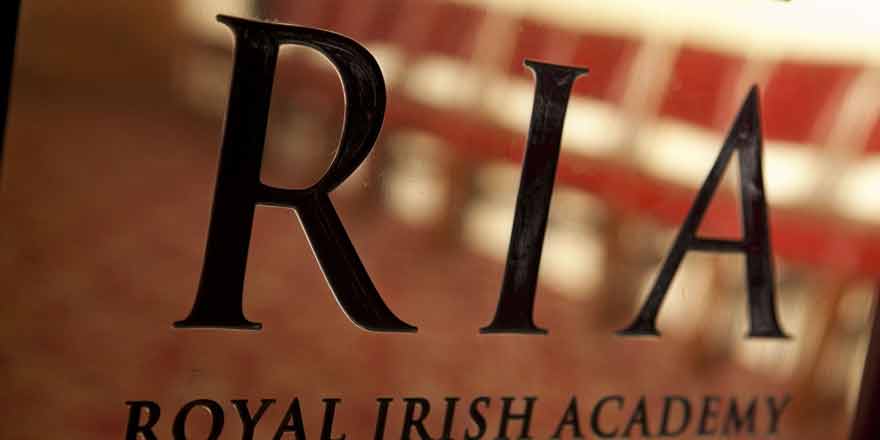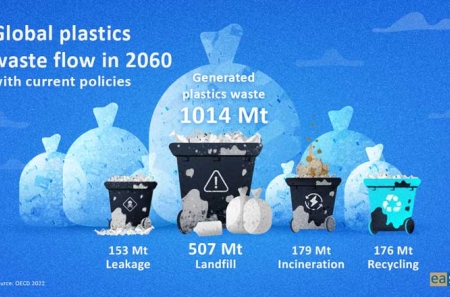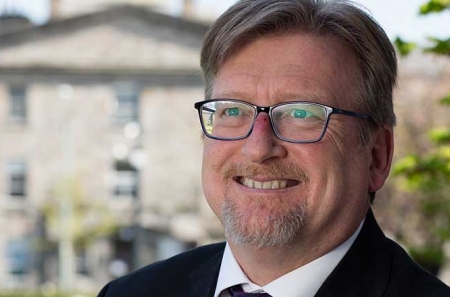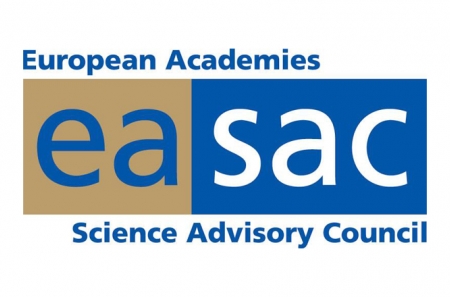
'The future is about talent not tax'
08 December 2016Read the Academy's opening statement to the Joint Oireachtas Committee on Education and Skills on the future funding of the higher education sector.
On 8 December 2016 the Royal Irish Academy, represented by Professor John Hegarty, appeared before a sitting of the Joint Oireachtas Committee on Education and Skills to discuss the findings of the Report of the Expert Group on the Future Funding for Higher Education. You can read the opening statement below:
Royal Irish Academy Statement to the Oireachtas Joint Committee on Education and Skills on the Report of the Expert Group on the Future Funding of Higher Education:
The Royal Irish Academy welcomes the invitation by the Joint Oireachtas Committee on Education and Skills to discuss the findings of the Expert Group on the Future Funding of Higher Education.
Background
Since 2008 the higher education system in Ireland has seen a severe divestment of its funding base:
- There has been a 38% decline in state grants from 2007/08 to 2014/15 while student numbers have increased by 25%
- There has been a 22% decrease in funding per student from €11,000 to €9,000 despite the student contribution charge trebling
- Academic and support staff numbers have fallen by 2,000 from 19,000 in 2008 to 17,000 in 2014
- The higher education capital budget has been reduced by 85%
Despite the best efforts of committed staff to be more efficient and entrepreneurial, the net effect of these cuts has led to a significant decline in quality, with the system now firmly on a downward slope. This is evidenced by recent falls in the international university rankings and a decline in the staff/student ratio (which is an important measure of the degree of personal interaction and mentoring between staff and students) from 16:1 to 20:1. The OECD average is 14:1.Investment in infrastructure across the system has also fallen from over €200million in 2008 to €35 million in 2014, with a resulting negative impact on the quality of the system’s capital stock. Added to this are the increased demands of the projected demographic increase in student numbers over the next 15 years, and it is clear that the system is in crisis.A strong, vibrant and internationally competitive higher education system is critical to Ireland’s social, cultural and economic life. Action is urgently needed to redress this crisis by increasing the scale of investment in higher education. Recent external international shocks, such as the Brexit referendum in the UK, and threats to continued foreign direct investment, make this case ever more compelling. The future is about talent, not tax.
The Royal Irish Academy Position
The publication of the Expert Group Report is an important step in the development of a clear pathway for a sustainable future for the system. The Academy welcomes this report and endorses its findings. In its submission to the Expert Group, the Academy suggested a new approach, acknowledging that while further resources are needed, the reality is that the state is unlikely to carry the burden of the entire cost. The Academy’s proposals were similar to the final proposals of the Expert Group, showing a significant degree of consensus.
The Academy proposes a multifaceted approach to meet the required annual investment in the system, which we have calculated at €1billion. This includes:
- A 25-30% increase in staff to improve the staff/student ratio to 16:1. Further growth in student numbers should only be considered following this adjustment
- The cost of further investment in higher education should be borne equitably by its key stakeholders, notably the state, students and the institutions themselves
- The establishment of an emergency capital investment fund of €580million per annum, over ten years, to fund major repairs and replacements for existing capital stock. Institutions should also be allowed to operate an annual surplus which could be used for infrastructural maintenance
- The Student Contribution Charge should be replaced by a new Student Fee and Support Mechanism, which would offer students the option of deferred payment through an income contingent student loan and the opportunity to borrow living and maintenance costs.
Access
The average annual cost of attending college away from home is €11,000[1], while the maximum grant available is €5,915. These costs, coupled with the requirement for the upfront payment of fees, has had a detrimental effect on access. 40% of families are also borrowing to finance participation in higher education. This has had a particularly negative effect on lower-income groups, which tend to be more debt adverse. Any new higher education funding model should therefore include provision for a well developed student support system. Income contingent student loans would have a positive effect by removing the need for upfront payment. Part-time education, which provides an alternative higher education pathway for many, could also be incentivised by allowing part-time students to avail of the student supports available to their full-time classmates. This could be supplemented by the introduction of a new tax relief for part-time postgraduate students.
In conclusion, the Academy wishes to commend the committee in its important work, and looks forward to working with its members as they attempt to build consensus on how best to address this most critical issue.
You can read the Academy' submission to the Expert Group Report - 'Advice Paper No. 8 On the Future Funding of Higher Education in Ireland'.
The report on the Academy forum 'A Dialogue on the Future Funding of Higher Education in Ireland' is also available to download.
Finally you can read Academy Advice Paper No 6 'On the Equity of Access to Higher Education'



